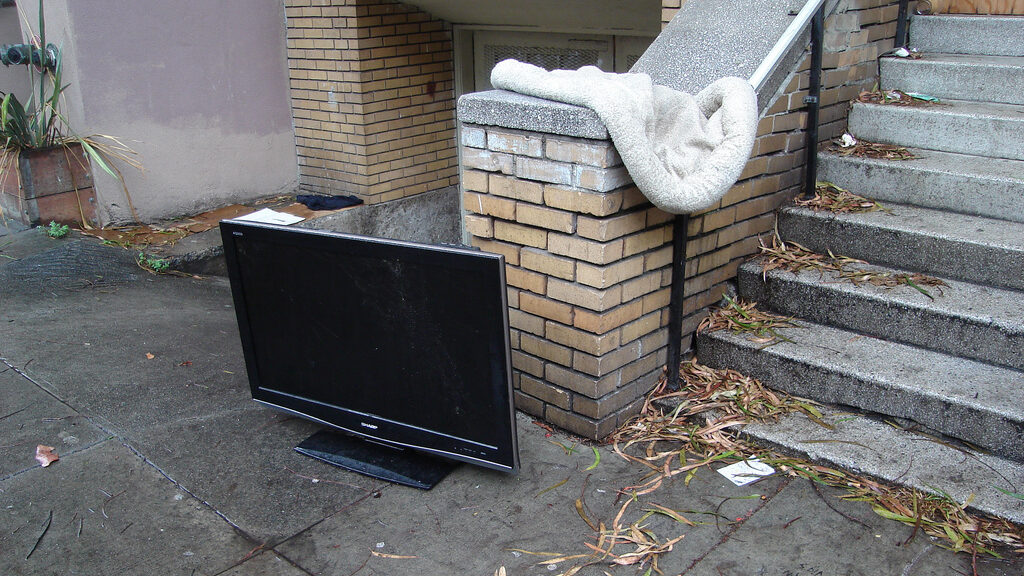If tech hardware reviewers are to be believed, there’s a mystery afoot as to why multiple major tech hardware players have recently committed big dollars and research resources to the development of XL tablets (12″+), and then shoved them out the door to a consumer market that appears to have not been waiting for them. Could it really be a simultaneous blunder on the part of the largest tech hardware companies on the planet? Or, could there actually be some logic to this outsized madness? The smart money is on logic.
Specifically I’ve read about 2 maxi-pads hitting the market before Christmas with screens of 12.9″ (Apple) and 18.4″ (Dell) respectively, which would appear on the surface to the answer to a question that nobody asked. The common conclusion is that they’re trying to force a laptop replacement once and for all as a work & leisure tool. I’m not buying it. For one thing, the problem with that strategy is that they haven’t provided a reasonable alternative to any of the advantages that have kept people devoted to laptops, especially on the work side of the equation. Sure, they’ve come much closer to an acceptable screen size, but only closer. Case in point, the screen size of the Apple is still well under that of all but the most petite laptops. There remains the issue of the keyboards, which are still afterthoughts on these big tabs, and still coming with too many compromises, not to mention an additional cost. That doesn’t sound like a savvy strategy for wooing the loyal laptop crowd.
I have another theory altogether, and my guess also comes with a built-in answer to the question of why they’re not marketing these devices for their true purpose. It’s because—to paraphrase Jack Nicholson—we can’t handle the truth. Or, probably more accurately, we’re just not ready for the truth quite yet. And the truth is that these devices are setting the stage for the end of the living room TV as we have all known it since the beginnings of the concept in the late ’40s. The concept being one of pushing a big black box up against one wall while the family all gathers around and jockeys for the prime viewing position while everyone pretends to like what’s on. The reality is that half of the people in the room would probably change the channel if they were alone. In other words, the end of the TV set as a means of viewing video entertainment.
My guess is that, if the TV remote were accidentally thrown out with the trash, it would be several days before anyone would even notice.
What’s coming as sure as the next sunrise is a paradigm shift in TV watching that began with the so-called “cord-cutters”; those abandoning real-time content from their cable provider opting instead for internet-delivered on-demand content directly from the source or a bevy of content aggregators. Initially most TVs failed to provide technically for this shift, which forced the practitioners to move the on-demand content to another screen. While the original alternate screen was a computer, mobility eventually dictated that the next screen of choice would be the smart-phone. The obvious limitation of the diminutive screen just became something they were willing to live with until(?). Then, along came the tablet. Sure, it was too big to carry around for most, it was a damn-sight better for viewing on-demand video from any room in the house and in a variety of positions. You get to watch what you want, when you want, with no competition for the remote. Bingo.
What this shift portends for the living room TV is pretty clear; that particular form-factor will soon be relegated to the trash heap of outmoded household appliances like the landline telephones and every variety of disc player. But is that a message that you’re ready to hear? Doesn’t the living room flat screen hold a sacred place in our hearts? Better than market it as that and create perhaps a backlash, better perhaps to just offer the obviously superior alternative and let nature take its ever-lovin’ and inevitable course? I sincerely believe that is the strategy of this play. But only time will tell if I’m right.
Here’s what I do know: from nearly the very day that everyone in my house possessed their own tablet, the living room tv has barely received a glance. My guess is that, if the TV remote were accidentally thrown out with the trash, it would be several days before anyone would even notice. And then, would any of us care enough to actually replace it?

